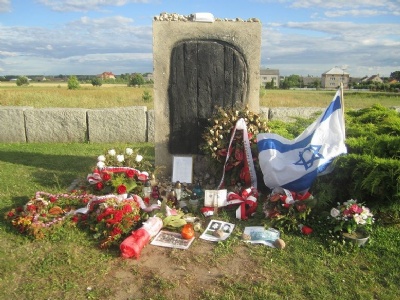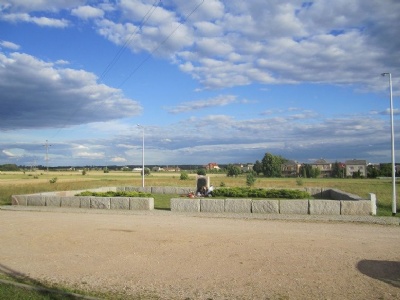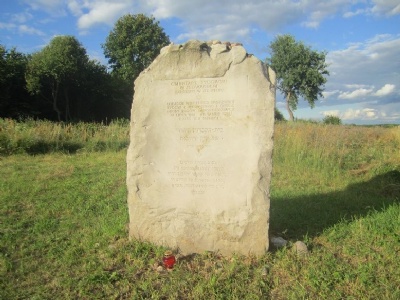Jedwabne
About sixty kilometres northwest of Bialystok lies a small town called Jedwabne. In the mid-thirties there lived about 2500 inhabitants of Jedwabne, of whom just under half confessed themselves to Judaism. The number of Jews fell until the outbreak of the Second World War but was relatively large in terms of the total number of inhabitants. The Jews mainly worked in trade and crafts, and the rest of the Catholic population were mainly farmers, just as in other similar places in eastern Poland at the time. Certainly there was anti-Semitism that could lead to some minor violence committed by Polish nationalists who blamed the Jews for the economic depression that occurred in the thirties, but it was not state-sanctioned. Generally speaking, from the current historical context, the Jewish and catholic populations lived in coexistence. But after the outbreak of the Second World War and later the fall of Poland when Jedwabne ended up in the soviet zone, the attitude towards the Jews changed. The old Polish social traditions were replaced with Soviet (communist) ideals and a repressive system was introduced against those who did not adapt. The Jews were blamed for this.
When Germany attacked the Soviet Union on June 22, 1941, Jedwabne was conquered as early as the 23rd, but the city’s Jews were not subjected to any spontaneous violent acts as was the case in many other places. The Germans also did not conduct any actions against the city’s Jews, but elsewhere massacres were carried out. Until July 10, Jedwabne’s Jewish population fared relatively well in comparison to other smaller communities. That day, Nazi police officers arrived in Jedwabne and called for a meeting with the town’s mayor, Marian Karolak. The german officers simply told Karolak to round-up the town’s Jews in the square. Karolak recruited people who both voluntarily and reluctantly signed up. The action was overseen by German gendarmes. In the square began a mob consisting of between 50 – 100 Poles to harass the Jews. For instance they were forced to carry around on a bust of Lenin. The events escalated and the mob became fiercer and most likely a number of Jews were killed in the square. Then the angry mob, which now consisted of about 20 – 40 people, took about 40 Jews to an empty barn where they were murdered. Later in the day, about 300 more Jews (men, women and children) were brought to the barn and this time the barn was set on fire and the Jews were burned inside. The remains were buried in two mass graves.
Current status: Demolished with monument (2013).
Location: 53°17'19.66" N 22°18'34.59" E
Get there: Car.
Follow up in books: Bikont, Anna: The Crime and the Silence: Confronting the Massacre of Jews in Wartime Jedwabne (2015).



Although the massacre was carried out by Polish catholics, it would not have been possible to carry it out without German interference. It was the Germans who created the external conditions and they were the ones who initiated the massacre and supervised it. The fact that the massacre took place about three weeks after the German occupation may indicate that it was the Germans who laid the foundation for it. Had the massacre been a spontaneous reaction in which non-Jewish residents saw an opportunity to settle with the Jews, this should perhaps have taken place in connection with the occupation and not several weeks later. But in any case, the massacre of between 20 – 40 Polish Catholics was carried out who, for one reason or another, chose to participate in the murderous action.
During communist rule, the official version was that it was the work of the Germans and their collaborators, something that was also reflected on the monument erected on the site in the sixties. But in the early 2000s, a new thorough investigation of the event was conducted and the old monument was replaced with a new one at the sixtieth anniversary of the event. The Polish president, who was present, officially apologised for the crime committed by Christian poles, not only at Jedwabne, but also for other similar events during the war. But the pogrom in Jedwabne remains a subject of debate as to whether degree the poles acted on their own initiative versus at the urging of the Germans.